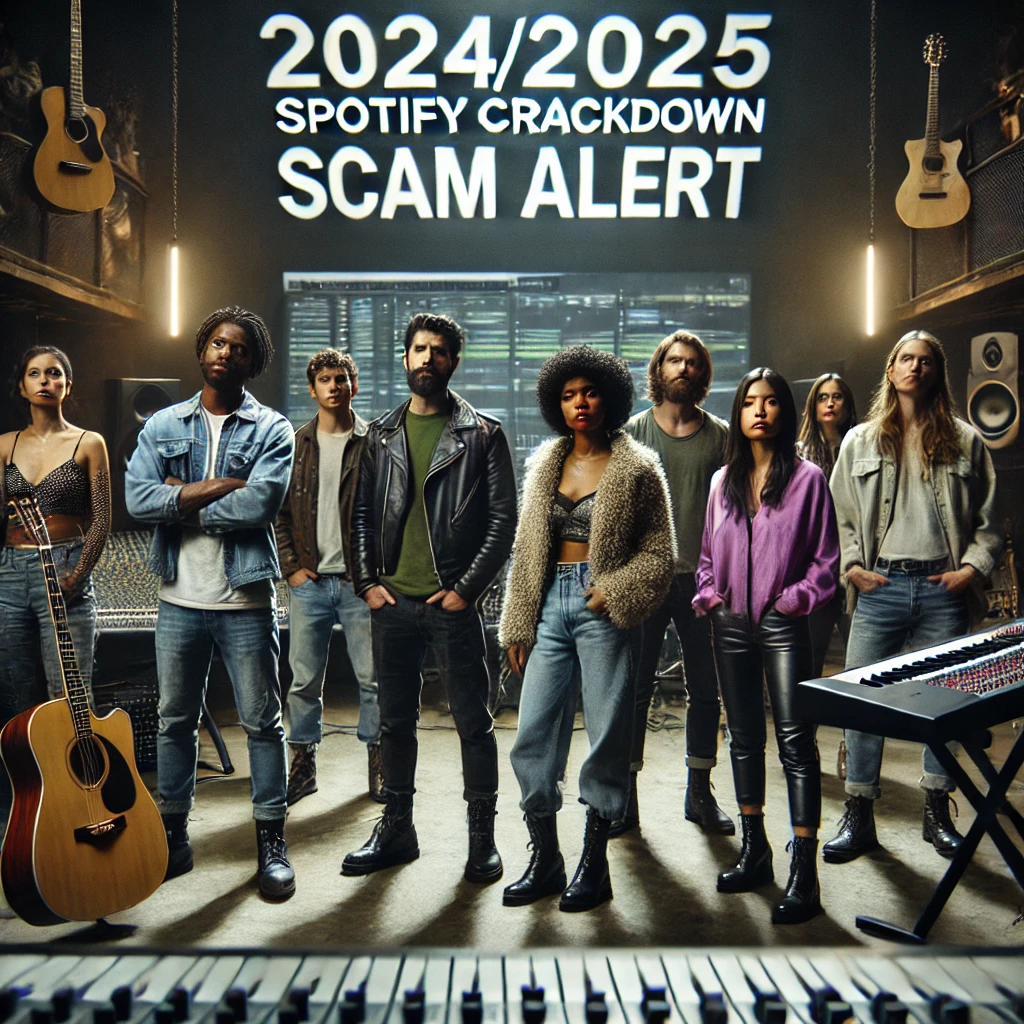Spotify’s 2024/2025 Crackdown: Demonetization and Removal of Songs
In recent months, a troubling trend has emerged on Spotify, one of the leading music streaming platforms. Artists across the globe are reporting increased instances where their songs are not only being demonetized but also removed altogether. This shift in Spotify’s policies has sent ripples through the music industry, particularly affecting independent artists who rely heavily on streaming platforms for revenue and exposure.
What’s Happening?
As we move into 2025, reports have surfaced from various artists whose tracks have suddenly been demonetized or removed from Spotify. These actions occur without clear communication or adequate explanation, leaving artists in the dark about the reasons behind such decisions. The lack of transparency has fueled speculation and discontent among the music community, prompting concerns about the criteria Spotify uses to evaluate content.
Why It Matters
The demonetization and removal of songs can have severe implications for artists:
- Financial Impact: Many artists depend on streaming royalties as a significant part of their income. Demonetization directly affects their earnings and can jeopardize their financial stability.
- Visibility and Reach: When songs are removed, artists lose a crucial platform to reach their listeners, potentially stalling or reversing their career progress.
- Artistic Censorship: The arbitrary removal of content can feel like a form of censorship, limiting the diversity of voices and creativity that platforms like Spotify can offer.
Speculations on Motives
While Spotify has not released detailed explanations, several theories have been proposed by the affected artists and industry analysts:
- Economic Prioritization: There’s concern that Spotify might be prioritizing content that has broader commercial appeal or is more profitable, potentially sidelining niche genres and independent artists.
- Compliance and Regulations: Increasing regulatory pressures in various countries may be forcing Spotify to tighten its content policies, though this should ideally be communicated transparently to the creators.
- Algorithmic Errors: Some suggest that Spotify’s algorithms, which are designed to detect copyright violations or inappropriate content, might be overzealously flagging and removing legitimate content.
What Can Artists Do?
Diversify Income Sources: To mitigate the risk of income disruption, artists should explore various revenue streams, such as live performances, merchandise sales, and fan subscriptions.
Engage Directly with Fans: Building a strong connection with fans through social media and official artist websites can reduce reliance on third-party platforms.
Seek Clarification and Appeal: Artists should press Spotify for clarity on specific cases of demonetization or removal and appeal these decisions whenever possible.
Collaborate for Change: By banding together, artists can more effectively advocate for fairer treatment and more transparent policies from streaming platforms.
Looking Ahead
As we continue to navigate these changes, the music community must advocate for transparency and fairness in how streaming platforms operate. The conversation about Spotify’s 2024/2025 actions is not just about algorithms and policies—it’s about the livelihood and creative expression of thousands of artists around the world.
This blog post aims to raise awareness and stimulate discussion about the ongoing issues with Spotify, encouraging artists and listeners to demand better and fairer practices in the streaming industry.

